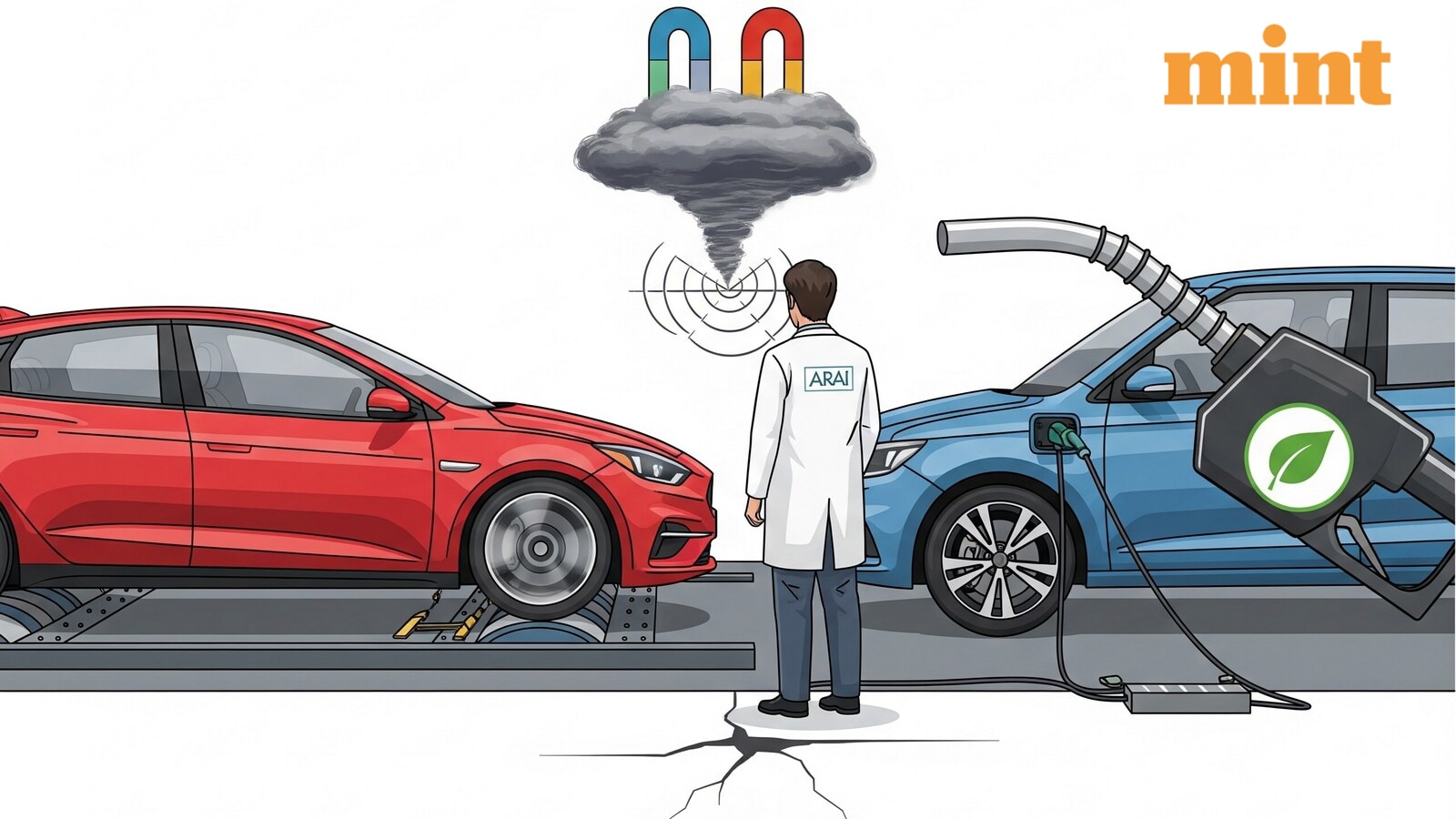This is a Mint Premium article gifted to you.
Subscribe to enjoy similar stories.
NEW DELHI : India’s oldest vehicle testing agency, the Automotive Research Association of India (Arai), is stepping up its role in India’s clean mobility push.
In FY25, it approved 80 localization applications under the government’s ₹25,938-crore production-linked incentive scheme for automobiles and auto parts (PLI-Auto)—more than double the 39 approvals in FY24, according to its annual report released on 15 September.
To streamline the process, Arai also launched a dedicated portal for localization testing under the PLI-Auto scheme in June 2024, allowing automakers to submit documents in one place, the report added.
PM E-Drive approvals rise
Similarly, Arai also provided approvals for over 350 vehicle models under the ₹10,900-crore PM E-Drive scheme in FY25. Arai did not state the number of models approved under the PM E-Drive scheme in the previous fiscal.
These schemes target manufacturers and consumers respectively. PLI-Auto scheme incentivises manufacturers to make zero-emission vehicles and the PM E-Drive scheme reduces the upfront cost of purchasing an electric vehicle for consumers.
Currently, 191 vehicle models have received localization approvals under the PM E-Drive scheme, and 123 vehicles and auto components have received similar clearances under the PLI-Auto scheme, according to the respective portals. The data is current as of today and covers all approvals since the schemes began—PLI-Auto, which received Cabinet approval in 2021, and PM E-Drive, cleared by the Cabinet in September 2024.
Rare earth crisis backdrop
The focus on testing of clean mobility reflects India’s push towards reducing fossil fuel emissions and increasing efficiency, at a time when the country’s auto industry is reeling from the shock of China’s rare earth magnet export cut.
In April this year, China halted the export of rare earth magnets which are essential in manufacturing all vehicles. This prompted the government to announce fiscal incentives for anyone trying to manufacture these magnets.
Mint reported on 13 September that the government is also planning exemptions for electric trucks and buses in the wake of the rare earth magnet crisis, loosening the localization criteria for these vehicle segments under the PM E-drive scheme.
Compliance and enforcement
Arai, along with other testing agencies such as the International Centre for Automotive Technology (ICAT), Global Automotive Research Centre (GARC), and National Automotive test Tracks (NATRAX), provides testing services for localization under the Centre’s e-mobility schemes.
Officials have stressed that the aim is not only decarbonization but also building indigenous capacity.
The importance of localization testing and Arai’s role in it is underscored by previous e-mobility schemes, wherein the government took action against companies found to be violating the localization criteria.
Under the second iteration of the Centre’s Faster Adoption and Manufacturing of Electric (and Hybrid) vehicles (FAME), the government found that a few electric two-wheeler makers were claiming incentives despite not meeting localization targets.
The government removed Hero Electric Vehicles Pvt Ltd, Benling India Energy and Technology Pvt Ltd and Okinawa Autotech International Pvt Ltd from the scheme for availing subsidies worth ₹297 crore cumulatively. The corporate affairs ministry also tasked the Serious Fraud Investigation Office (SFIO) to search the premises of these companies in December 2024.
Under the PM E-Drive scheme, automakers must comply with a phased manufacturing programme (PMP) that specifies which components can be imported.
Under PLI-Auto, manufacturers need 50% localization in their products to qualify for incentives.
Testing ethanol blends
Arai also tested flex fuel hybrid vehicles with high ethanol blends — E85, E93, and E100 — to measure the emissions gap compared with petrol and diesel vehicles in FY25, the annual report stated.
Also, its flex fuel hybrid testing came amid harsh consumer backlash against a 20% blend of ethanol in petrol (E20), which allegedly reduced fuel efficiency of vehicles.
When a public interest litigation was filed in the Supreme Court stating that the mandatory sale of E20 fuel took away the consumers’ right to choose whether they wanted pure gasoline or blended flex fuels, the top court dismissed the petition stating that the government’s decision to push E20 would benefit farmers.
In a press conference held jointly by Arai, Society of Indian Automobile Manufacturers (SIAM), and the Federation of Indian Petroleum Industry (FIPI) to address consumer concerns about E20 fuel, officials said that while a marginal drop in fuel economy was observed, concerns about drastic mileage drops “are misplaced”.
Download the Mint app and read premium stories
Log in to our website to save your bookmarks. It’ll just take a moment.
You are just one step away from creating your watchlist!
Oops! Looks like you have exceeded the limit to bookmark the image. Remove some to bookmark this image.
Your session has expired, please login again.
You are now subscribed to our newsletters. In case you can’t find any email from our side, please check the spam folder.
This is a subscriber only feature Subscribe Now to get daily updates on WhatsApp











